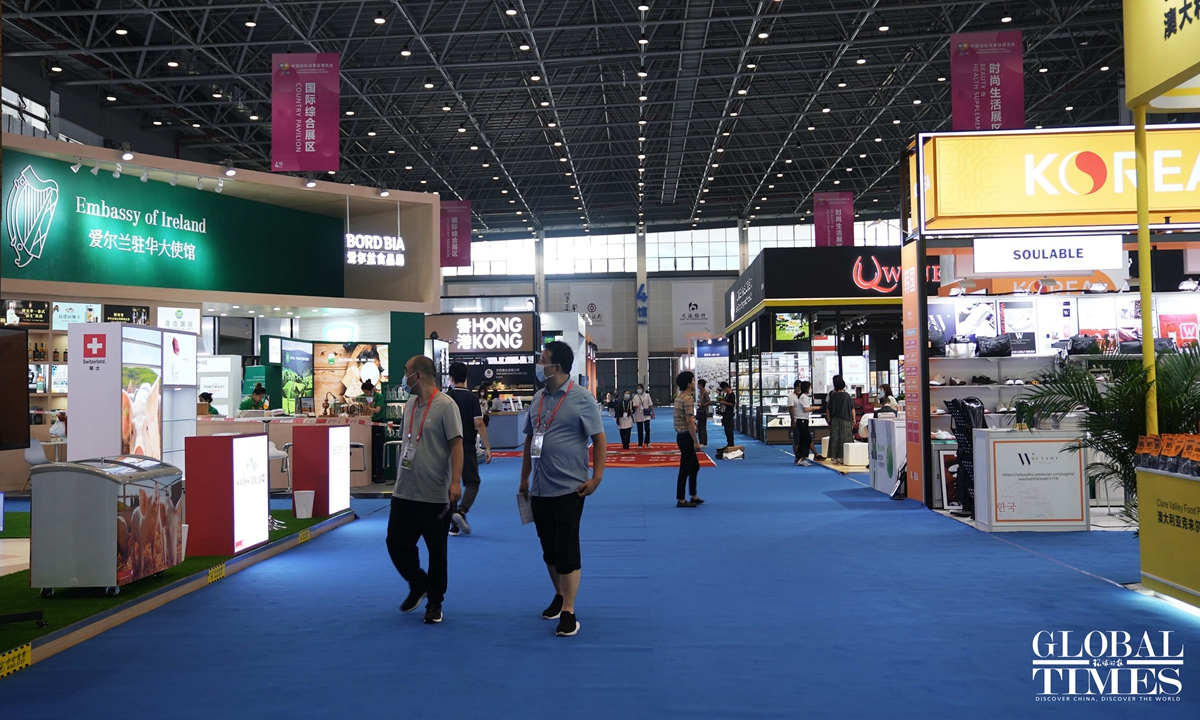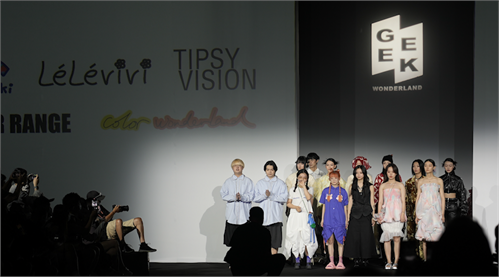US firms eager to capitalize on China’s burgeoning demand for premium consumer goods
Increasingly affluent households to offer growing business opportunities

2nd China International Consumer Products Expo kicks off in Hainan . Photo: Liu Xiaojing/GT
US businesses vowed staunch commitments to the Chinese market at the second China International Consumer Products Expo (CICPE) in Haikou, South China's Hainan Province, offering a ray of light amid uncertainties over one of the world's most consequential relationships.There's no booth specifically for the US, unlike France, Japan, South Korea and Ireland, among other CICPE participating countries.
Still, US firms taking the CICPE stage were among the most-visited at this year's consumer expo, where American companies voiced eagerness to capitalize on China's burgeoning market for premium consumer goods, despite bilateral economic and trade rifts.
Making a second appearance at the CICPE, Dell Technologies showcased its latest consumer lineup including the upscale gaming brand Alienware at the six-day consumer expo, which runs until Saturday.
As a foreign firm that's been present in the Chinese market for 24 years, Dell Technologies has been fully integrated into China's economic development, with its production, procurement, research and development, sales and services deeply rooted in the country, Senior Vice President of Dell Technologies Wang Lijun told the Global Times.
The US tech giant's success in the Chinese market is attributed to its close alignment with the country's development strategies, a push for local ecosystem buildup, for it to become a genuine "foreign-invested local firm," Wang said.
Dell has more than 12,500 staffers in the Chinese market, its second largest market after the US.
"We're very upbeat about the potential of Hainan as a trend-setter in the market for high-end consumer products," the technology executive said, pledging to strengthen commitment to the market in Hainan, one of the fastest-growing provinces in the country.
The tropical island province took the second spot in the country's GDP growth rate rankings last year, and its annual average growth rate over the past two years was atop the country.
In the case of Tesla, the annual consumer expo was arguably a vital platform that can't be missed for any multinational hinging their future on the world's largest vehicle market.
As the first foreign automaker to have a wholly owned manufacturing operation in China, Tesla has localized 90 percent of its supply chains, resulting in a "four-hour circle of friends" in the Yangtze River Delta region that comprises Suzhou and Nantong in Jiangsu Province and Ningbo in Zhejiang Province, the US electric vehicle firm said in a statement sent to the Global Times.
Its network of suppliers has gone nationwide, with many component producers forming large industrial clusters.
In an effort to appeal to local consumers, Tesla has built over 1,200 supercharger stations and more than 8,700 charging piles in China's mainland, as part of a charging network covering 370-plus cities and regions.
New York-based luxury brand house Tapestry, with its portfolios including Coach, Kate Spade and Stuart Weitzman, also took part in this year's CICPE.
Along with the continued push to build the Hainan free trade port, the potential of the local market is expected to be further unleashed, introducing new opportunities for the consumer market, according to a company statement sent to the Global Times, citing Tapestry Asia-Pacific President and Coach China CEO and President Yann Bozec.
Even though some businesses have in recent years been affected by the bilateral tensions, they remain optimistic about the prospects of their operations in the Chinese market.
At the stall of the Ginseng Growers Association of America (GGAA), a sales manager giving her surname as Guo told the Global Times Thursday that the tariff war inevitably put pressure on American ginseng's shipments to China, but China's enormous marketplace for healthcare offerings renders the market an indispensable destination for American ginseng growers.
The intense interest in the world's second-largest consumer market that resonates with US firms with operations in China is seen as making the case for a mutually beneficial relationship between the world's top two economies.
In remarks to a forum on global consumption innovation during the CICPE on Tuesday, Matthew Margulies, senior vice president of China operations for the US-China Business Council, said that China has a huge consumer market and US firms are hoping for a slice of the market's growth opportunities.
"China offers a $5 trillion consumption growth opportunity over the next decade," per findings of a report from the McKinsey Global Institute in July 2021.
The number of Chinese households in the upper-middle income group and above was forecast to grow by about 70 percent in 10 years. By then, "China could almost account for as many as Europe and the US combined, at about 400 million" of these households, the research said.
China and the US are two huge economies and the two countries could support each other in bringing better products for consumers, Margulies remarked.



